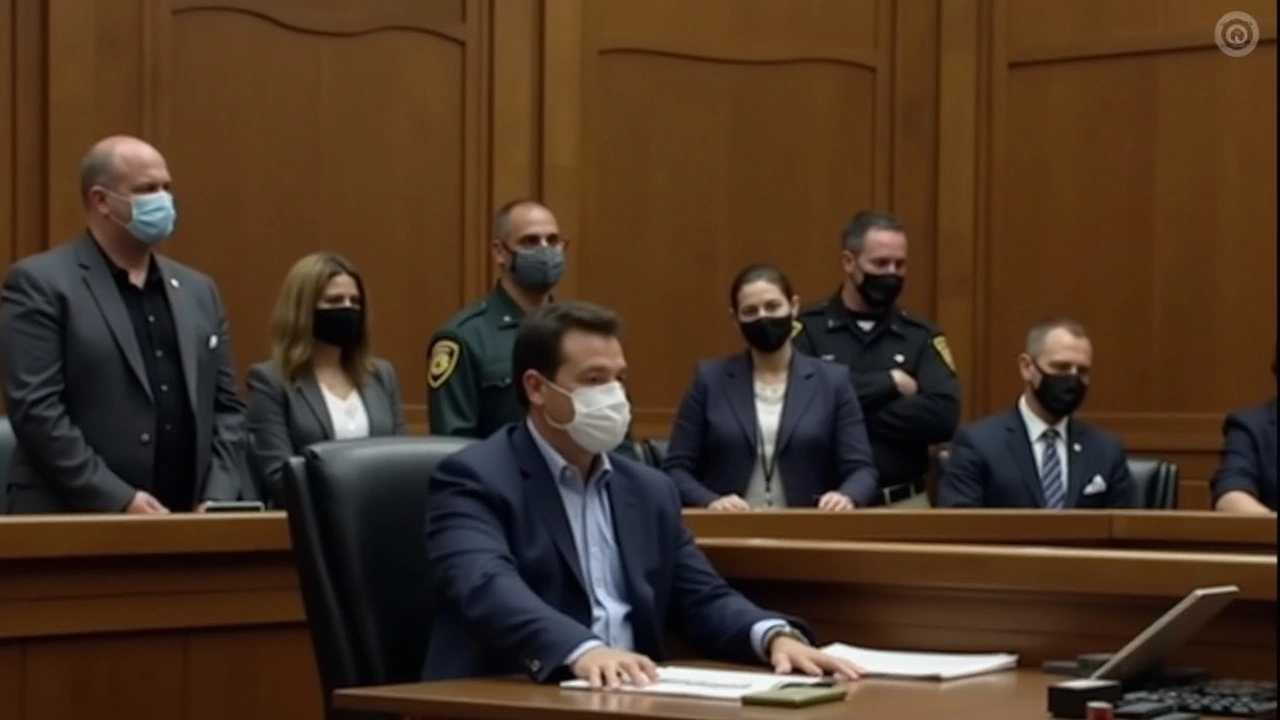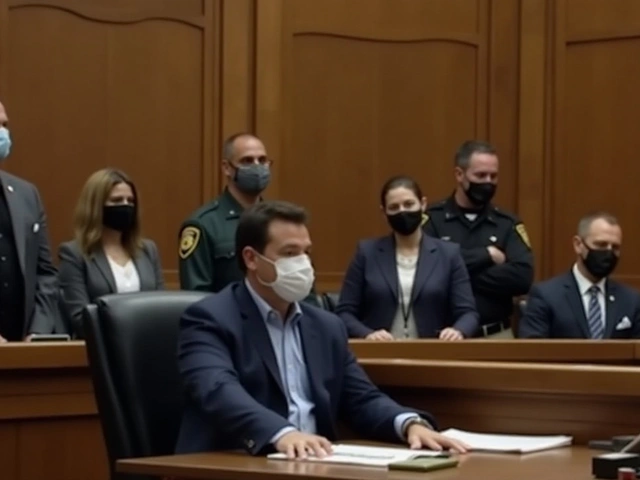Michael Lomas Extradited to South Africa Amid Eskom Corruption Allegations
Introduction: Michael Lomas' Extradition to South Africa
The extradition of Michael Lomas, a former contractor for South Africa's power utility giant Eskom, has marked a significant milestone in the nation's battle against corruption. After a prolonged legal and diplomatic effort, Lomas has been successfully brought back to South African soil to face a series of allegations related to corruption and other criminal activities during his tenure. The case against him forms part of a broader crackdown on mismanagement and corruption that has daunted Eskom and several other public institutions in South Africa for years.
The Road to Extradition
The extradition process for Michael Lomas has been far from straightforward. Initial charges against Lomas surfaced amidst a broader investigation into Eskom's dealings, revealing a tangled web of corrupt practices that had eroded public trust and drained the utility of critical resources. The wheels of justice began turning slowly as investigators delved into financial records, communications, and contracts that Lomas was involved with during his time as an Eskom contractor.
Determined to hold those accountable, South African authorities collaborated with international counterparts to trace Lomas, who had left the country. Diplomatic channels were engaged, and legal procedures initiated in the foreign nation where Lomas had sought refuge. The need for meticulous documentation and unwavering determination from both legal teams underscored the challenges inherent in such extraditions.
The Allegations: A Web of Corruption
Michael Lomas stands accused of a spectrum of criminal activities, with corruption taking center stage. Allegations suggest that Lomas, using his position and relationships within Eskom, orchestrated a series of fraudulent deals, siphoning funds meant for crucial utility projects into private coffers. These acts of deception, marked by falsified contracts and kickbacks, form just a part of his alleged misdemeanors.
Beyond financial fraud, Lomas' case has spotlighted how unscrupulous contractors exploited systemic weaknesses within state-owned enterprises. Investigations have also revealed potential links to other internal and external entities, extending the realm of accountability beyond a single individual. The extent of the looting and mismanagement directly affected Eskom's operational capacity, leading to persistent power outages and economic upheaval.
Impact on Eskom and Broader Implications for South Africa
Eskom's struggles are not solely rooted in financial loss but extend to diminishing public confidence and compromised service delivery. The institution, a critical artery for South Africa's socio-economic development, has seen its credibility repeatedly under siege. Each instance of reported corruption weakens Eskom's ability to perform and, by extension, the government's reputation for ensuring good governance.
Lomas’ extradition thus represents more than just a legal victory; it symbolizes the beginning of rectifying a long-standing pattern of impunity. It sends a message that no matter the geographical distance or the complexity of legal barriers, South Africa remains committed to reclaiming accountability. There is cautious optimism that this step will invigorate the nation’s anti-corruption mechanism, steering other reluctant entities to strengthen their governance frameworks.
Legal Proceedings Ahead
With Lomas back in South Africa, the path now leads to trial. The legal calendar is expected to feature intense sessions, where evidence will be scrutinized, testimonies heard, and defenses mounted. Given the breadth and seriousness of the charges, legal experts anticipate a lengthy and intricate process. All eyes will be on the legal proceedings, as each development will set precedence for how similarly large-scale corruption cases could be handled in the future.
Furthermore, the trial will offer a deeper insight into the inner workings of corruption within state-owned enterprises. It will likely expose loopholes and system inadequacies that allowed such malpractices to fester. Addressing these vulnerabilities will be crucial for Eskom and other similar entities to safeguard public funds and restore their operational integrity.
Reflecting on Accountability and Governance
The extradition and subsequent trial of Michael Lomas compel a reflection on the principles of accountability and governance. For South Africa, a nation striving to emerge from widespread corruption, such cases are touchstones for growth. Proper sentencing, if convictions are secured, will serve as a deterrent to others contemplating similar paths. Equally, corruption’s endemic nature implies a need for comprehensive reforms that go beyond punitive measures.
Efforts to inculcate a culture of integrity within state institutions must be relentless. This includes employing stringent audit systems, enhancing whistleblower protection, and promoting transparency in procurement processes. Public participation in oversight mechanisms could also bridge the trust deficit, fostering a more collaborative approach to governance.

Conclusion: A Long Road Ahead
Michael Lomas’ extradition to South Africa is indeed a laudable accomplishment, yet it is merely a juncture on a longer path to justice and reform. Eskom’s ordeal reflects broader societal issues that need addressing with sustained effort and unwavering resolve. The outcomes of the trial will not only determine one man's fate but could also pivot South Africa toward a future where corruption and mismanagement are no longer tolerated.
As the legal proceedings advance, the nation holds its breath, partially in anticipation of justice for past wrongs and partially in hope for a transformed landscape where state-owned enterprises operate with increased accountability and efficiency. It is this hope that fuels the ongoing struggle against entrenched malpractices, underscoring that every battle won against corruption edges South Africa a step closer to its aspirations for ethical governance and socio-economic prosperity.







